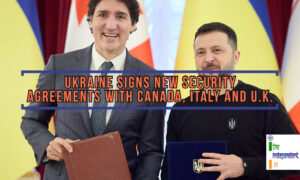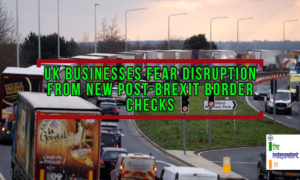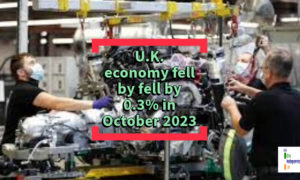
The British Prime Minister – Boris Johnson today, i.e., Friday, October 16, 2020 said that its time to prepare for a no trade deal post-Brexit with the European Union (E.U.).
Giving a timeline of 10 weeks for getting the United Kingdom (U.K.) to prepare, the PM accused the E.U. of not negotiating in the right manner. According to him, the only way-out is if Brussel changes its course.
A no trade deal would cost U.S.$ 25 billion in 2021 to U.K. Johnson said that the E.U. Summit today, which everyone thought to be Brexit Summit, turned out unexpected after the E.U. leaders spoke about lack of progress and called on London to yield on key sticking points.
Speaking on the occasion, Johnson said, “I have concluded that we should get ready for January 1 with arrangements that are more like Australia’s based on simple principles of global free trade.”
He further added, “With high hearts and with complete confidence, we will prepare to embrace the alternative and we will prosper mightily as an independent free trading nation, controlling and setting our own laws.”
The European Commission’s Head of Task Force for Relations with the U.K. – Michel Barnier is due in London next week for further discussions but Downing Street believes that the trip would be futile unless E.U. agrees to shift its position.
Taking it to twitter, the President of E.U. – Ursula von der Leyen tweeted, “The EU continues to work for a deal, but not at any price. As planned, our negotiation team will go to London next week to intensify these negotiations.”
The President of France – Emmanuel Macron tweeted (translated from French), “In view of Brexit, the British need a deal more than the European Union. The Europeans are ready to continue negotiations. Our conditions are clear and known. It is now up to the UK to choose whether or not it wants a deal.” (Tweet in French: En vue du Brexit, les Britanniques ont davantage besoin d’un accord que l’Union européenne. Les Européens sont prêts à poursuivre les négociations. Nos conditions sont claires et connues. C’est désormais au Royaume-Uni de choisir s’il souhaite ou non un accord.)
While U.K. insists on a Canada type deal, E.U. is not favouring such an agreement as Britain, the world’s 6th largest economy and geographically next door to Europe, poses a much bigger competitive challenge than distant Canada. The E.U.’s agreement with Canada is called the Comprehensive Economic and Trade Agreement (CETA). The negotiations for CETA began in 2009 and it came into force in 2017, although it has not yet been signed off by all the E.U. member states. While CETA removes most of the tariffs of goods that are traded between E.U. and Canada, tariffs remain on poultry, meat and eggs. It does little for the trade in services and in particular almost nothing for the trade in financial services, which is very important for the U.K. economy. The border checks are also there in CETA ensuring compliance to regulatory requirements.
The U.K. and E.U. had been hoping for a zero-tariff agreement to govern their trading relationship. Both sides are calling on each other to compromise on key issues, including fishing and limits on government subsidies to businesses.
As per Citi and The Institute for Fiscal Studies (IFS), the British economy is likely to contract by 9.4% this year. This would be the largest drop since 1921, according to data from the Bank of England. The economy is already struggling to recover from the ongoing Coronavirus (COVID-19). A disorderly break with the E.U. would further delay the recovery of the economy.







